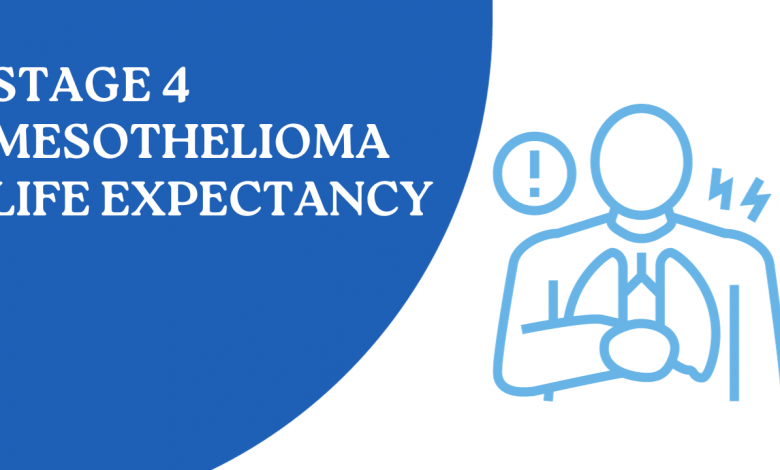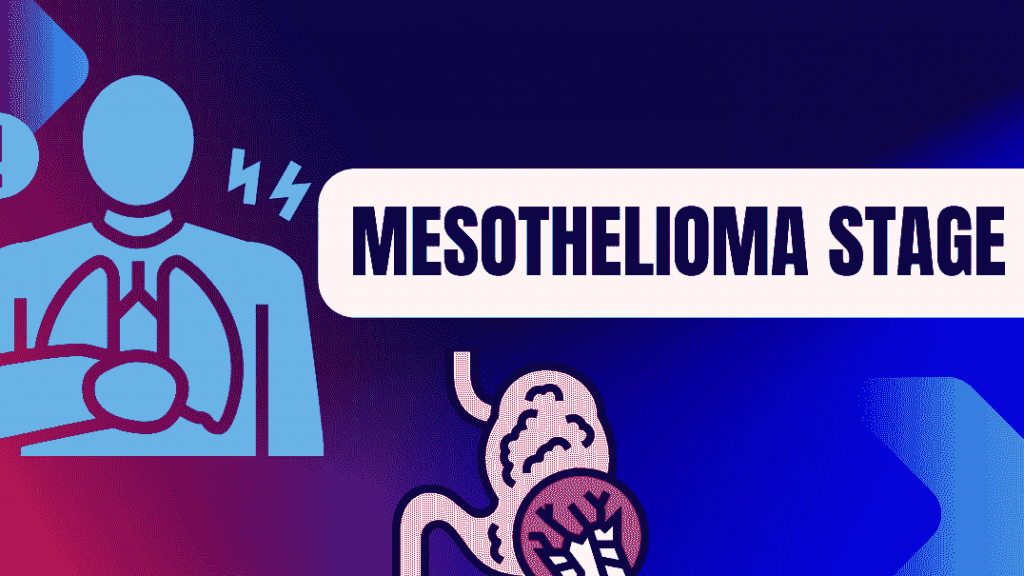Stage 4 Mesothelioma Life Expectancy: Understanding the Journey – Latest 2024

Receiving a diagnosis of stage 4 mesothelioma can be overwhelming. At this advanced stage, the disease has typically spread extensively, often limiting treatment options. Understanding what to expect regarding life expectancy and available support is crucial for patients and their families. In this article, we’ll delve into stage 4 mesothelioma life expectancy, treatment options, and how to navigate this challenging journey.
Table of Contents
Stage 4 Mesothelioma Overview
Stage 4 mesothelioma, also known as advanced or end-stage mesothelioma, represents the most advanced form of the disease. By this stage, mesothelioma has usually spread beyond the primary site to distant organs and tissues, making curative treatment extremely challenging.
Life Expectancy at Stage 4
The life expectancy for individuals diagnosed with stage 4 mesothelioma is typically shorter compared to earlier stages. On average, patients may survive from a few months to approximately one year after diagnosis. However, it’s important to note that life expectancy can vary widely based on several factors:
- Overall Health: The patient’s general health and fitness play a significant role in determining life expectancy.
- Histology: The type of mesothelioma (epithelioid, sarcomatoid, or biphasic) can influence how aggressively the disease progresses.
- Age: Younger patients may have a slightly longer life expectancy compared to older individuals.
- Treatment: While stage 4 mesothelioma is rarely curable, palliative treatments can extend life and improve quality of life. These treatments focus on managing symptoms and improving comfort.
Palliative Care
Palliative care becomes a central component of treatment at this stage. It aims to enhance the patient’s quality of life by managing pain, alleviating symptoms, and providing emotional support. A multidisciplinary team, including palliative care specialists, helps patients and their families navigate the physical and emotional challenges of end-stage mesothelioma.
Clinical Trials
Participation in clinical trials may be an option for some stage 4 mesothelioma patients. Clinical trials investigate experimental treatments that could potentially extend life expectancy. Patients should discuss these options with their healthcare team.
Emotional Support
A mesothelioma diagnosis at this stage can be emotionally distressing. Seeking emotional support through counseling or support groups can help patients and families cope with the challenges they face.
Legal Considerations
For patients with mesothelioma caused by asbestos exposure, pursuing legal action may provide compensation for medical expenses and financial support during this difficult time.
While a diagnosis of stage 4 mesothelioma comes with unique challenges, it’s essential for patients and their families to remain informed and seek comprehensive care. Life expectancy can vary, and palliative treatments can make a meaningful difference in a patient’s quality of life. Surrounding oneself with a supportive healthcare team and emotional support system is crucial for navigating this challenging journey with dignity and grace.

Factors Influencing Life Expectancy
- Tumor Size and Location: The size and location of tumors in the body can significantly impact prognosis. Some tumors may be inoperable due to their location or size.
- Metastasis: The extent of cancer spread to distant organs and lymph nodes plays a crucial role. More extensive metastasis generally results in a shorter life expectancy.
- Performance Status: The patient’s ability to perform daily activities and their overall health, often measured using tools like the Eastern Cooperative Oncology Group (ECOG) performance status scale, can influence life expectancy.
- Response to Treatment: Some patients respond positively to palliative treatments, which can help manage symptoms and potentially extend life.
- Comorbidities: The presence of other medical conditions, such as heart disease or diabetes, can complicate the patient’s overall health and affect life expectancy.
Common Symptoms at Stage 4 Mesolethioma
- Severe Pain: Stage 4 mesothelioma can cause severe chest or abdominal pain, which may require strong pain management techniques.
- Difficulty Breathing: As the disease progresses, patients may experience increased difficulty breathing due to fluid buildup in the pleural or peritoneal cavities.
- Weight Loss: Unintentional weight loss is common in advanced stages as the body’s metabolism is affected.
- Fatigue: Extreme tiredness and fatigue are common due to the body’s battle against cancer.
- Decreased Appetite: Many patients experience a decreased appetite, leading to malnutrition.
- Coughing and Coughing Up Blood: Mesothelioma can cause persistent coughing, often with blood in sputum. See Also Stage 2 Mesothelioma Life Expectancy – Latest 2023
End-of-Life Care
- Hospice Care: Hospice care is a specialized form of care focused on providing comfort and support to patients with a terminal illness. It can be provided at home or in a healthcare facility.
- Family Support: Mesothelioma doesn’t just impact the patient; it affects the entire family. Ensuring emotional support and counseling for family members is crucial.
- Advance Directives: Patients should consider advance directives, such as living wills and healthcare proxies, to express their wishes regarding end-of-life care.
Hope and Quality of Life
While stage 4 mesothelioma presents significant challenges, it’s important to remember that each patient’s journey is unique. Some individuals surpass expected life expectancies, and medical advancements continue to offer hope for improved treatments.
Research and Advocacy
Many organizations and foundations are dedicated to advancing research on mesothelioma and advocating for patients’ rights. These resources can provide valuable information, support, and potential opportunities for involvement.
Remember, the information provided here is meant to supplement the main article and should be incorporated where relevant to provide a comprehensive overview of stage 4 mesothelioma life expectancy and considerations.
Palliative Care
In stage 4 mesothelioma cases, palliative care becomes a crucial aspect of treatment. It focuses on improving the patient’s quality of life, managing pain and symptoms, and providing emotional support. Palliative care specialists work alongside oncologists to address the holistic needs of the patient.
Clinical Trials
Patients with advanced mesothelioma might consider participating in clinical trials. These trials evaluate experimental treatments and therapies that could potentially extend life expectancy. It’s essential for patients to discuss these options with their healthcare team to determine eligibility.
Support Groups
Joining mesothelioma support groups can be immensely beneficial for patients and their families. These groups offer emotional support, a sense of community, and valuable information on coping with the challenges of the disease.
Legal Considerations
Many mesothelioma cases are linked to asbestos exposure in the workplace or other settings. Patients and their families may explore legal options to seek compensation for medical expenses and other related costs. Consulting with an attorney experienced in asbestos-related cases is advisable.
Holistic Therapies
Some patients incorporate holistic therapies like acupuncture, meditation, and dietary changes into their treatment plans. While these should not replace conventional medical care, they can complement it and improve overall well-being.
Psychological Support
Dealing with an advanced-stage cancer diagnosis can be emotionally overwhelming. Psychologists or counselors specializing in cancer-related issues can provide valuable psychological support to help patients and families navigate this challenging journey.
Celebrating Life
It’s important to focus on celebrating life, even in the face of a challenging diagnosis. Patients can create lasting memories with loved ones, fulfill personal goals, and find moments of joy amidst the difficulties.
Emerging Treatments
Advancements in mesothelioma research continue to yield promising treatments, including immunotherapy and targeted therapies. Patients should stay informed about these developments and consult with their medical team to explore suitable options. Also Watch Free Molecular Biology Classes



